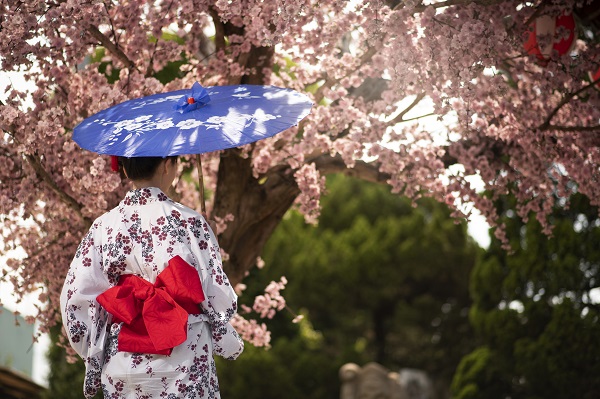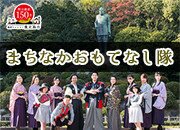Traditional Japanese Holidays: A Journey Through the Calendar

Delve into the diverse array of Traditional Japanese Holidays, where time-honored customs intersect with contemporary interpretations. These holidays encompass a spectrum of cultural practices, from the exuberant displays of festivals to the contemplative moments of quiet observances. By traversing the calendar, one can discern a landscape where tradition harmonizes with innovation, illustrating the enduring narratives of adaptation and growth.
Unravel the intricate narratives embedded within these revered festivities and embark on a journey that delves into the rich tapestry of Japan's cultural heritage.
Major Japanese Holidays
When discussing major Japanese holidays, it's important to note several significant celebrations that hold cultural importance. New Year's Day (shogatsu) marks the beginning of the year with traditional practices such as hatsumode shrine visits and osechi-ryori feasting.
Coming of Age Day (Seijin no Hi) occurs on the second Monday of January, signifying the transition to adulthood at the age of 20.
National Foundation Day is observed on February 11th to commemorate Japan's legendary founding by Emperor Jimmu.
The Emperor's Birthday falls on February 23rd and typically includes a public appearance by the imperial family.
Vernal Equinox Day (Shunbun no Hi) is celebrated on March 20th or 21st, focusing on appreciating nature and family gatherings.
These holidays offer insights into Japan's cultural heritage and traditions.
You can discover how many Days Until Holidays in Japan remains.
Special Days in Japan
Among the diverse traditional Japanese holidays, there are unique special days that hold cultural significance and are marked by specific customs and observances. In addition to the commonly known national holidays such as New Year and Emperor Showa's Birthday, Japan also commemorates other significant public holidays. These include Equinox Day, which marks the seasonal transitions, the Coming of Age Ceremony for individuals reaching 20 years old, Greenery Day dedicated to nature conservation, Foundation Day celebrating the establishment of the nation, Constitution Memorial Day reflecting on Japan's legal framework, and Marine Day honoring the importance of the ocean.
While these occasions may not enjoy widespread recognition globally, they play a crucial role in Japanese culture by upholding traditions and highlighting core values.
Spring Festivals and Celebrations
During the spring season in Japan, various traditional festivals and celebrations take place, reflecting the country's rich cultural heritage.
One notable event is the Dolls Festival, or Hina-matsuri, observed on March 3rd, coinciding with Girls' Day. Families exhibit traditional dolls during this festival to symbolize the well-being and prosperity of young girls.
Another significant occasion is the Spring Equinox Day around March 20th, which underscores reverence for nature and honors ancestors.
Greenery Day, held on May 4th, originated from Emperor Showa's admiration for plants and encourages appreciation of the environment.
Additionally, Children's Day on May 5th involves the display of koinobori, carp-shaped streamers representing strength and resilience for family members.
Summer Traditions and Festivals
Summer in Japan is characterized by several traditional festivals and observances. The Star Festival, held in July/August, is a community event celebrating love and good fortune.
Ocean Day, observed on the third Monday of July, is a national holiday dedicated to recognizing the significance of the ocean.
August 11th marks Mountain Day, a time to appreciate Japan's picturesque landscapes.
Obon, taking place from July/August 13-15, is a Buddhist tradition to honor ancestors.
Bon, another summer festival, is a time to pay respects to the spirits of the deceased. These festivities showcase Japan's cultural heritage and deep respect for nature and ancestors.
Fall Festivities and Observances
During the autumn season in Japan, several traditional observances and festivals are prominent.
In September, Respect for the Aged Day, or Keiro no Hi, is celebrated to honor the elderly members of society.
Autumn Equinox Day, or Shubun no Hi, serves as a time for paying respects to ancestors and acknowledging the changing seasons.
In November, Culture Day is observed nationwide, promoting cultural activities and academic pursuits.
The Seven-Five-Three festival, known as Shichi-Go-San, involves children aged 3, 5, and 7 dressing up and visiting shrines to pray for their well-being and growth.
These autumn traditions in Japan highlight values such as respect for elders, honoring ancestors, and nurturing artistic endeavors, making it a culturally significant time of the year.
Conclusion
As we delve into the traditional Japanese holidays, it's important to recognize the deep-rooted cultural significance they carry. These holidays, ranging from the solemn New Year's Day to the festive Children's Day, offer insights into Japan's rich traditions and values. By embracing and honoring these customs, we gain a greater understanding of Japan's unique cultural heritage that has been passed down through generations. It's an opportunity to appreciate and celebrate these special days, acknowledging the intricate tapestry of beliefs and practices that make Japan a truly distinctive and captivating country.












